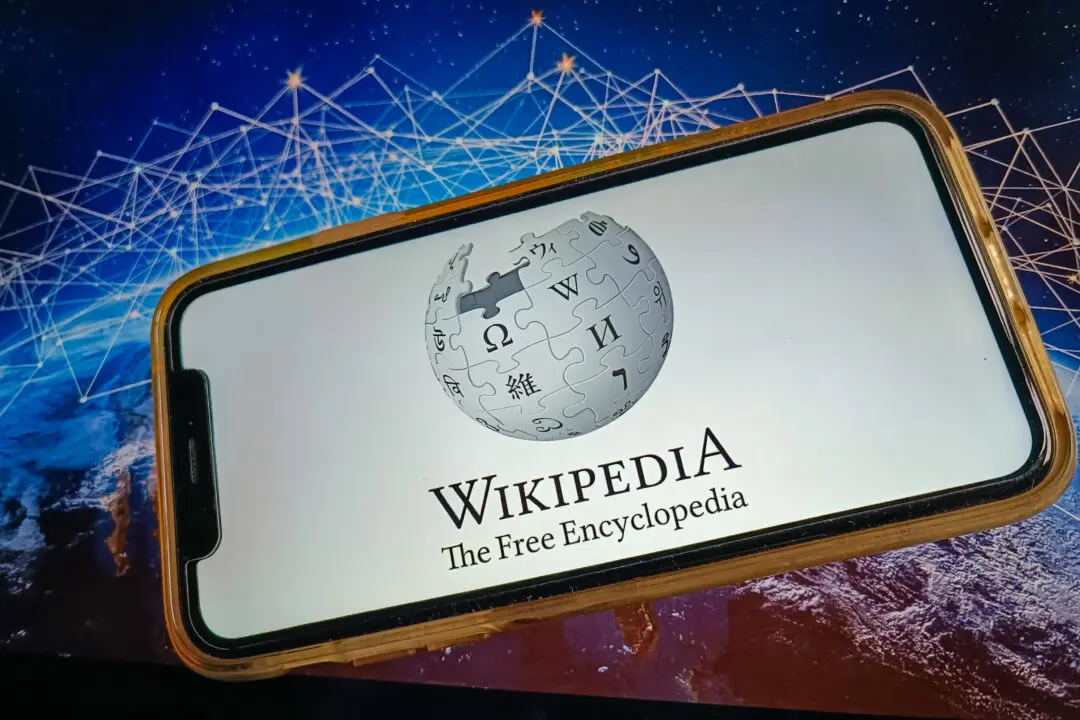The firm behind Wikipedia has launched a legal challenge against the UK’s Online Safety Act, warning the specific requirements it could place on the platform would allow more online vandalism and misinformation to appear on the site.
The Wikimedia Foundation said it was launching a legal challenge against the thresholds of the act, which would categorise Wikipedia as a category one service under the new rules, meaning it is subject to the most stringent duties on protecting users from harmful content online.
Under this category, Wikipedia says it will be required to carry out user verification and filtering duties, which it warns would damage its system of volunteer users and communities who edit and review content on the site.
The foundation said the new duties would mean that while it would not require it to verify the identity of all users, it would be required to allow any user to block other unverified users from editing or removing content they post, upsetting the delicate hierarchy the site currently has in place.
The platform warned this change could mean malicious users could easily post harmful, false, and misinformation content, and block Wikipedia’s volunteer editors from then removing it.
“Wikipedia is kept free of bad content because of the important work of thousands of members of the public, who can review and improve the content on the website to ensure it is neutral, fact-based and well-sourced,” the Wikimedia Foundation said in a blog post.
Sophisticated volunteer communities, working in more than 300 languages, collectively govern almost every aspect of day-to-day life on Wikipedia.
Their ability to set and enforce policies, and to review, improve, or remove what other volunteers post, is central to Wikipedia’s success, notably in resisting vandalism, abuse, and misinformation.
The blog post said: “For example, volunteer users worked day and night to ensure that Wikipedia presented neutral and reliable information about the Southport murders at the same time as misinformation and race-baiting spread unchecked on social media.
“However, if Wikipedia is designated as category one, the Wikimedia Foundation will need to verify the identity of Wikipedia users.
“That rule does not itself force every user to undergo verification — but under a linked rule, the foundation would also need to allow other (potentially malicious) users to block all unverified users from fixing or removing any content they post.
“This could mean significant amounts of vandalism, disinformation or abuse going unchecked on Wikipedia, unless volunteers of all ages, all over the world, undergo identity verification.”
The Online Safety Act is steadily coming into force this year, with social media and other platforms hosting user-generated content becoming subject to a range of duties that require them to protect users, and in particular children, from seeing harmful or illegal content.
Firms who breach the new rules face fines of up to £18 million or 10 percent of global revenue, whichever is greater.
The Wikimedia Foundation said it did not oppose online safety regulation, or even the use of a categories system, but said it felt it would be “overregulated” if designated as a category one service and felt compelled to act.
It added: “Although the UK Government felt this category one duty (which is just one of many) would usefully support police powers ‘to tackle criminal anonymous abuse’ on social media, Wikipedia is not like social media.
“Wikipedia relies on empowered volunteer users working together to decide what appears on the website. This new duty would be exceptionally burdensome (especially for users with no easy access to digital ID).
“Worse still, it could expose users to data breaches, stalking, vexatious lawsuits or even imprisonment by authoritarian regimes. Privacy is central to how we keep users safe and empowered.
“Designed for social media, this is just one of several category one duties that could seriously harm Wikipedia.”
An Ofcom spokesperson said, “We note the Wikimedia Foundation’s decision to challenge the categorisation regulations set by the Secretary of State under the Online Safety Act.”






